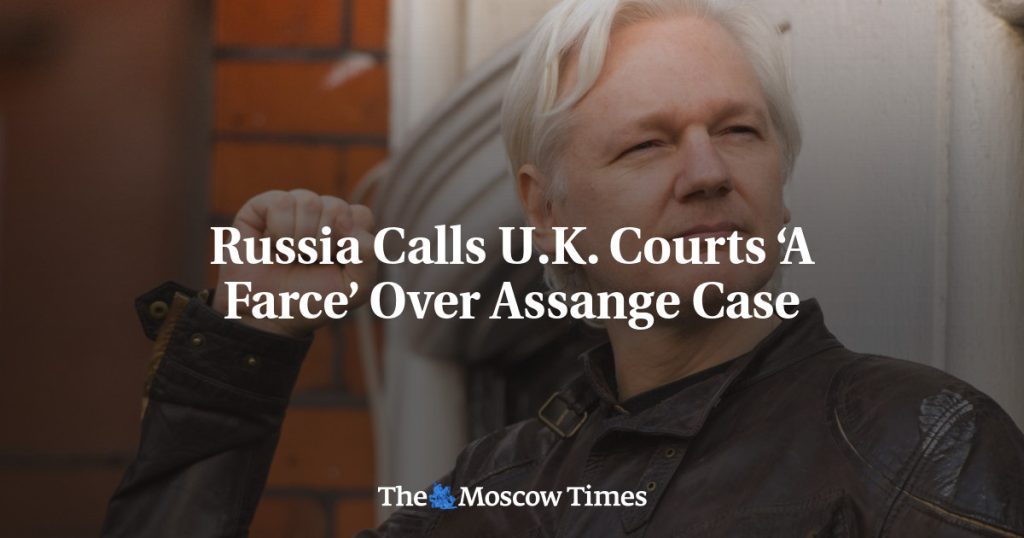Russian Foreign Ministry spokeswoman Maria Zakharova criticized Britain’s judiciary as a “farce” over its handling of WikiLeaks founder Julian Assange’s extradition case. Assange, held in a London prison since 2019, faces extradition to the United States for his involvement in releasing classified documents on the Iraq and Afghanistan wars. Zakharova accused the U.K. legal system of failing Assange, who she described as a victim of British and American intelligence agencies.
The United States has issued multiple indictments against Assange from 2018 to 2020 for charges related to his publication of classified information. These charges have been condemned by human rights organizations such as Amnesty International and Reporters Without Borders. Russia frequently references the Assange case to deflect scrutiny of its own legal system, which has been accused of being used to suppress dissent. The Russian government’s criticism of British judiciary in Assange’s case highlights broader tensions around freedom of the press and government power.
Assange’s legal battle has drawn international attention as he fights against extradition and potential prosecution in the United States. Supporters of Assange argue that his work as a whistleblower and exposing government secrets serve the public interest, while critics claim he endangered lives and national security. The complexity of Assange’s case raises questions about the balance between national security concerns, freedom of the press, and the rights of individuals accused of revealing classified information.
The Russian government’s strong condemnation of the U.K. judiciary’s treatment of Assange reflects ongoing geopolitical tensions between Russia and Western countries, including the United States and Britain. Russia’s utilization of Assange’s case to criticize British legal procedures and project its own narrative of judicial fairness may be perceived as a strategic move to deflect attention from its own human rights record. The Assange case serves as a focal point for debates on government transparency, freedom of expression, and the rights of whistleblowers in an era of increasing digital surveillance.
Amid growing concerns about press freedom and the treatment of whistleblowers, the Assange case has become a symbol of the challenges facing journalists and activists who seek to hold governments accountable. The impact of Assange’s legal proceedings extends beyond his individual fate, highlighting broader issues related to surveillance, government transparency, and the role of the media in informing the public. As the international community watches the developments in Assange’s extradition case, the outcome will have implications for the future of press freedom and government accountability in an era of digital information sharing.
Ultimately, the Assange case represents a complex intersection of national security, freedom of the press, and individual rights in an interconnected world where information is increasingly politicized. The Russian government’s criticism of British judiciary in Assange’s case underscores broader concerns about the manipulation of legal systems for political purposes and the challenges faced by individuals who expose government wrongdoing. With Assange’s fate still uncertain and ongoing debates over press freedom and government transparency, the implications of his case resonate far beyond the confines of a London courtroom, shaping discussions on power, justice, and freedom in the digital age.


